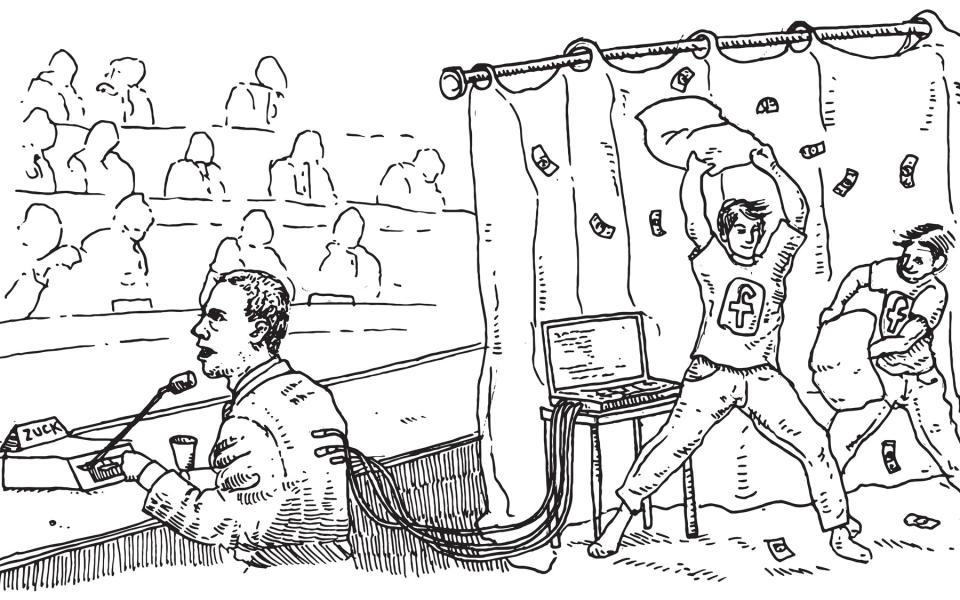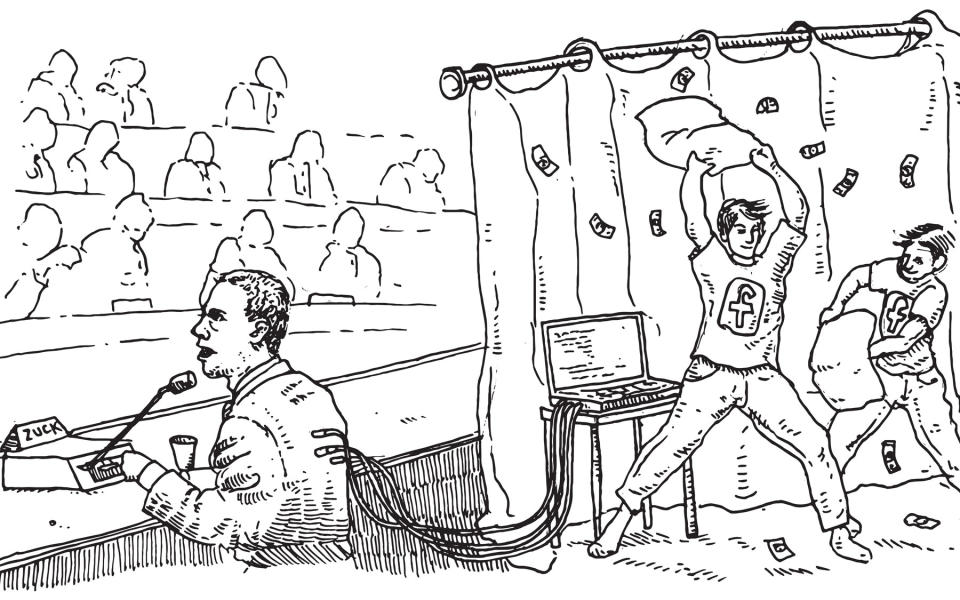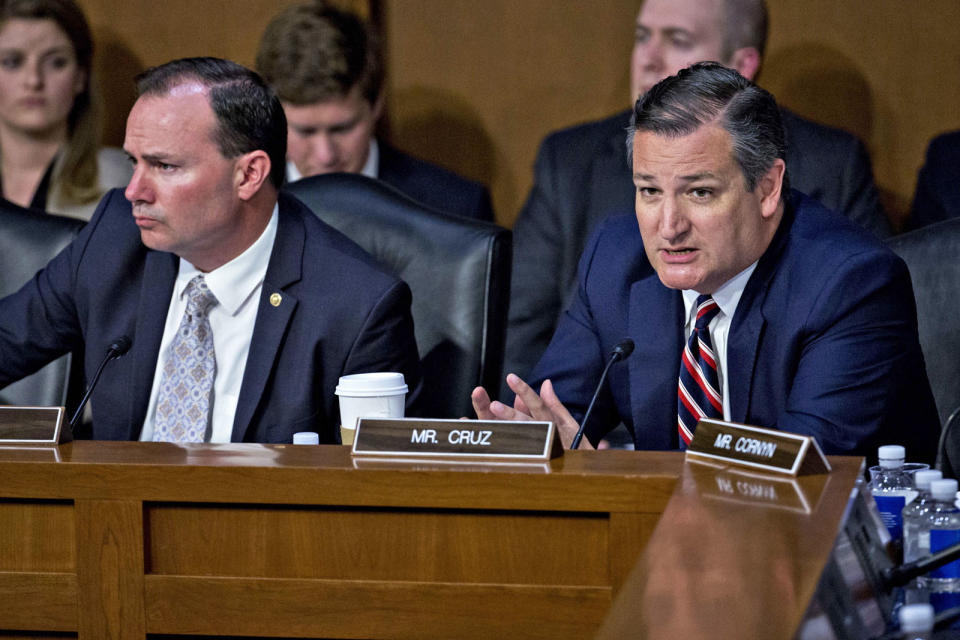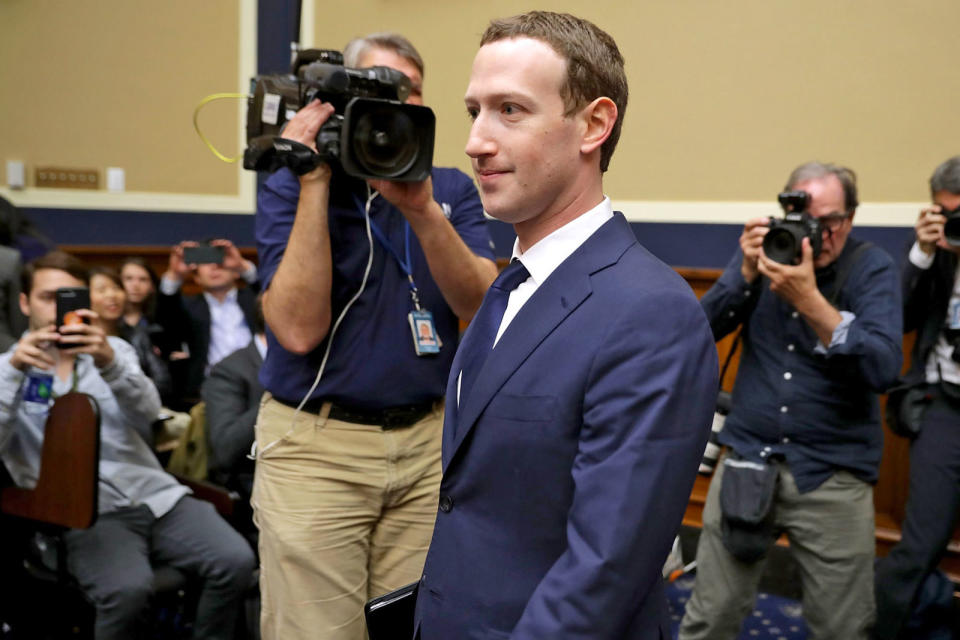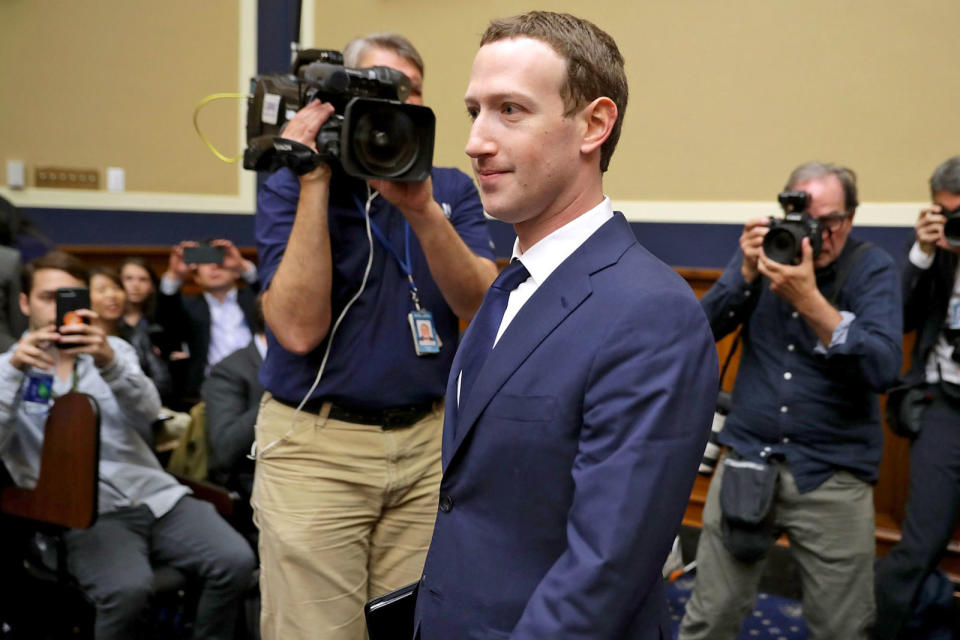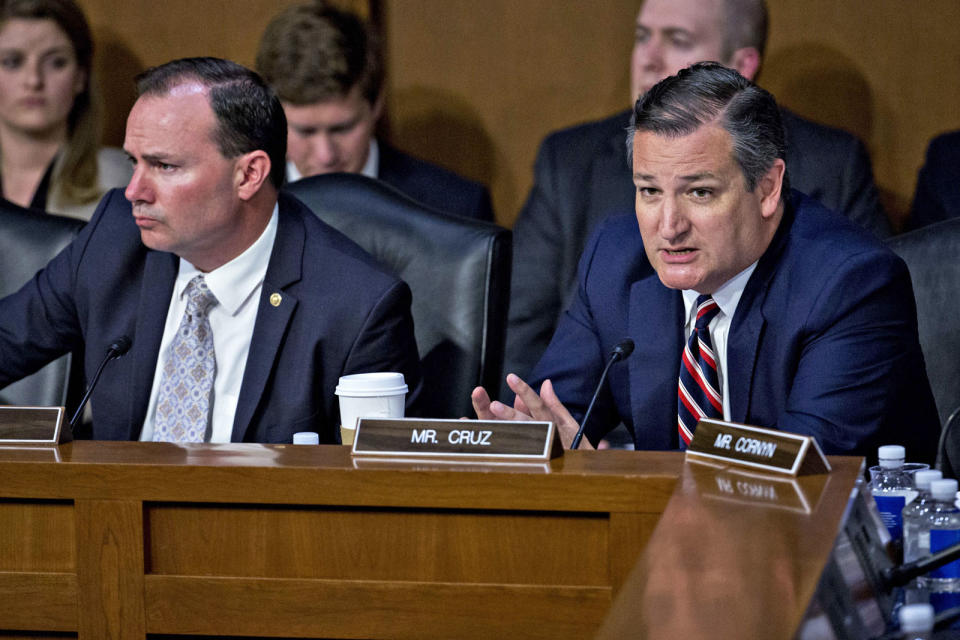Mark Zuckerberg got grilled by Congress. Was it worth it?
Did you know Facebook was started in a dorm room?
On Tuesday and Wednesday, Zuckerberg gave testimony to Congress in response to his company's role in the Cambridge Analytica scandal, Russian election interference and his website's utter nightmare of data privacy. He impressed people by wearing his absolute nicest human suit.
Mr. Zuckerberg's 10 hours of dodging lawmakers' questions in the proverbial hot seat evoked the internet's best memes about aliens who fool humanity into becoming food. The Cirque du Dystopia atmosphere was enhanced by Zuckerberg's actual seat, which was fitted with a booster cushion to make him appear taller. His wee seat certainly distracted press from the truly freaky attempts at misdirection flowing from his face hole.
Much virtual ink was spilled fussing over the 33-year-old boy billionaire wearing a suit like a grown-up man to talk to the adults. Wow! They grow up so fast on those diets of purloined data! But yes: He sat on a booster seat, which may have actually been a wireless charging station. And while Zuckerberg let slip little things like his belief that Facebook is basically above the law, far too many write-ups goggled at his silly big-boy chair.
It's a carefully cultivated image. An indulgence granted to a certain kind of white startup jock who gets endless chances to drunk-drive democracy and human rights as if he's a freshman intern just learning the ropes of ethics, trust and professionalism. An image Zuckerberg himself perpetuated throughout the hearing by mentioning Facebook's college dorm room creation myth on a loop. (See also: "Mark Zuckerberg Cited For Contempt of Congress After Refusing to Shut The Fuck Up About How He Started Company in Dorm Room.")
Getting a good, long look at him unsettled much of the general population. Much ado was made of his thousand-yard stare and robotic enjoyment of human water. Star Trek: The Next Generation fans were rankled by his uncanny resemblance to Data. But any real story lay in Zuckerberg's responses, which infuriated the bipartisan assembly with clumsy, repetitive avoidance tactics and bizarre, often fact-challenged admissions.
When not clamming up like a busted murder suspect when lawmakers mentioned Palantir, that is.
Let's just say that fact-checking in the aftermath is not looking good. Zuckerberg said he'd never heard of Facebook's "shadow profiles," causing The Guardian to get whiplash from their double-take. He claimed that everyone consents to giving Facebook their data, despite also saying that Facebook tracks nonusers for reasons of "security" ... and commercial purposes. That's like consent, right?
Anyway. He practically did a "look, shiny!" when asked about Facebook's tracking of logged-off users. His answer was politely described as "vague" in press — even though Facebook has been caught doing exactly this, and repeatedly, and its continual activity doing so was ruled illegal. Hey: Keeping up with headlines about your own company, one that you lovingly started in your dorm room because you really care about human connection, is hard when you're a genius. And when asked about collecting transaction data? Nah, he said he didn't think it did that, nope. But maybe Mark should've checked out Facebook's website before his big day. The Guardian did, and Facebook says it does exactly that on its website.
He almost broke the brains of fact-checkers at The New York Times, too. Mr. Zuckerberg told lawmakers that his company first learned of Russia's Facebook influence operations "right around the time of the 2016 election itself." Prior to this week, that answer was 2017. When he told lawmakers that "we made changes in 2014 that would have prevented what happened with Cambridge Analytica from happening today," NYT was like, yeah ... not so much. The paper flat-out said Zuckerberg's statement "Cambridge Analytica wasn't using our services in 2015 as far as we can tell" is false.
And pretty much everyone on the planet laughed when he said: "You're not allowed to have a fake account on Facebook."
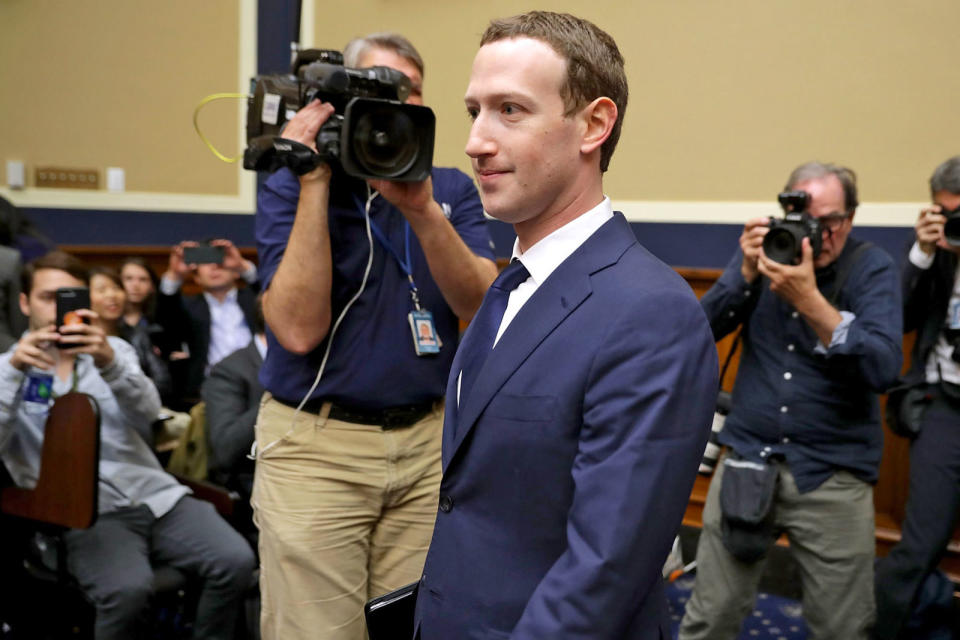
There's much more, but you get the (distorted) picture. Maybe Mark Zuckerberg's Facebook is a different Facebook from the one we're all talking about. At this point, this is the only explanation that makes sense.
To put it lightly, like the suggestion of a gentle and invisible breeze, or the concept of consent to a Facebook employee, lawmakers were not pleased with Zuckerberg's fact-challenged testimony. A few even called him on it. Rep. John Sarbanes (D-MD) skewered Zuck's claim that Facebook notified the Trump and Clinton campaigns of Russian attempts to hack into those campaigns. "But representatives of both campaigns, in the last 24 hours, have said that didn't happen," he said. "So we're going to follow up on that and find out what the real story is."
In the cut of it all, lawmakers drew out some crazy stuff. When asked to define hate speech, Zuck said it was a hard question (it's not). He said he believes he's more responsible with the personal data of millions of Americans than the federal government — probably not a good look when you're pretending to obey laws. He admitted there was a discussion in which the company decided not to inform users about Cambridge Analytica.
Generally, Mr. Zuckerberg did what he could to say "regulation is good" while wholly avoiding saying he would support legislation to get user consent for use of their information.
Perhaps the Zuckerbot was just malfunctioning.
When lawmakers asked why anyone should trust Facebook after enduring years of the company's untrustworthy behavior, they were told (again) that Facebook was started in a dorm room and is about helping people connect.
When asked what happens with user data and third parties, they were told that Facebook doesn't sell data.
(Lawmakers were consistently befuddled by this, Facebook's life-preserver defense it doesn't sell data. None of the R-Grampas asked if maybe FB just sells unfettered access to it instead, or trades, or rents or Airbnb's our PII. Regardless, if we learned anything it's that Facebook doesn't know what happens with our data, and hasn't cared for generations of users.)
And for at least 20of this week's questions (I stopped counting at 20) Zuckerberg pinky-swore his team would get back to them on it.
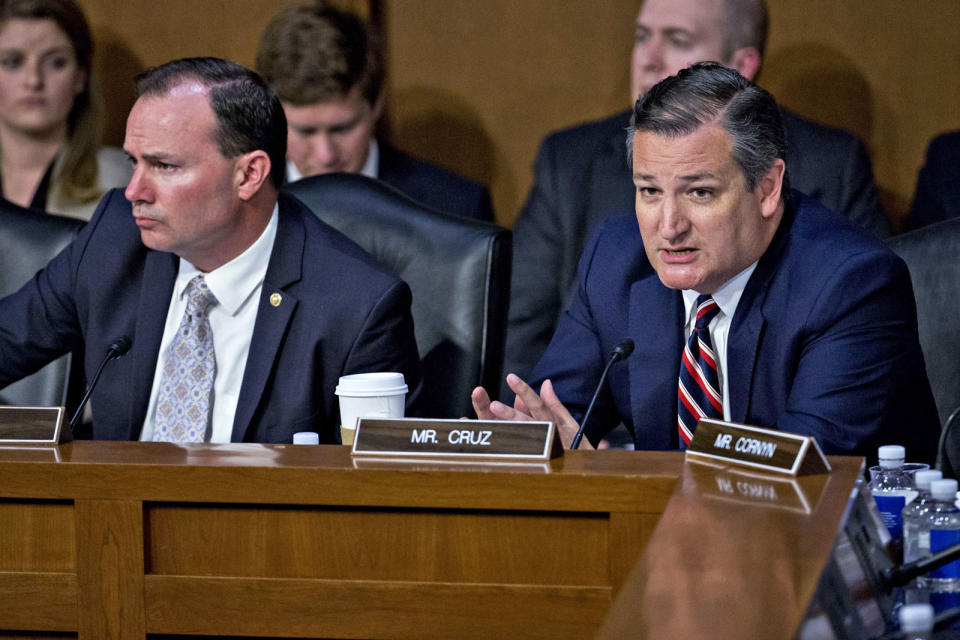
Unfortunately, his abysmal answers were on par with the overall quality of questions. Ted Cruz clearly relished the opportunity to have a little chat with Zuckerberg. Cruz dutifully brought an accusation straight off Brietbart's pre-hearing front page, advancing his party's victimology myth: the conspiracy theory that Facebook discriminates against conservatives.
Congressman Joe Barton (R-TX) and Marsha Blackburn (R-TN) followed Cruz's lead, wasting everyone's time alleging Facebook had discriminated against pro-Trump bloggers Diamond and Silk by censoring them. This accusation was also a Fox News lead and, to no one's surprise, it was exposed as a complete hoax Thursday. Fake news, indeed.
It's not that these conservatives missed the memo on Zuckerberg's own neocon views and belief that wealthy white neocon Peter Thiel represents diversity. It's just that they want Facebook to be their safe space forever. That Facebook bent over backward to coddle conservatives last time they complained only encouraged them.
Because really: If there's any group Facebook doesn't want to appear to discriminate against, it's conservatives. And maybe only conservatives, for they are certainly better represented at the company than anyone else. I mean, FOSTA-SESTA passed, and Facebook didn't even feel it because it was already censoring sexual speech and sex workers better than even Orwell could imagine.
Well, they can have it. Facebook has endangered the most vulnerable people in the world, repeatedly, and it will continue to do so. Its employees are so indoctrinated against the outside world, they quite literally don't care, preferring to rage against threats to their bubble from within. Which is the worst possible quality in a company that pretends to be a steward of human connection.
Overall, American lawmakers expressed they do not trust Facebook to do the right thing. Repeatedly. And then, at the end of it all, no one was satisfied.
So that went well.

